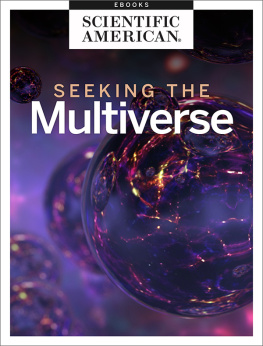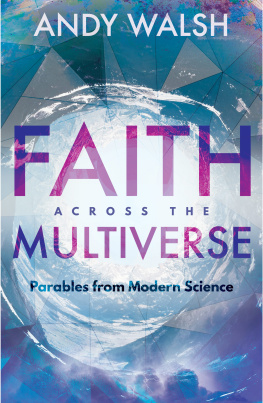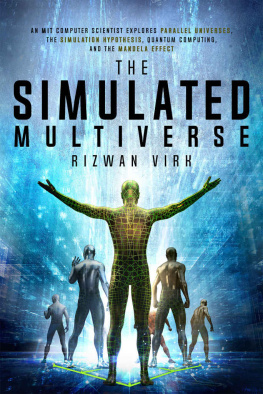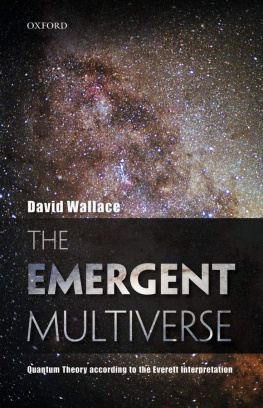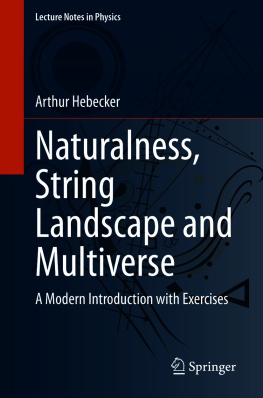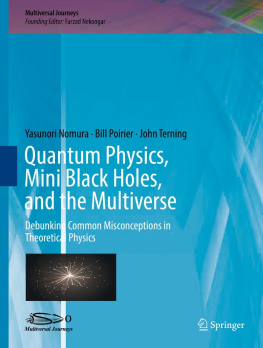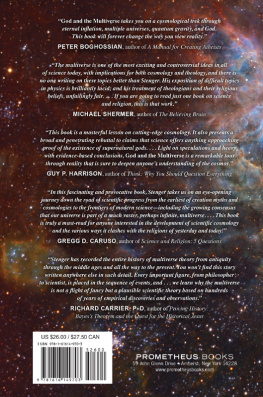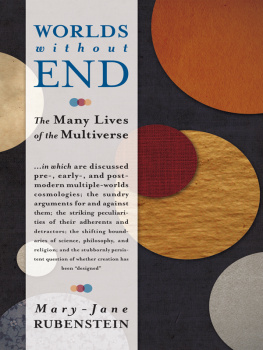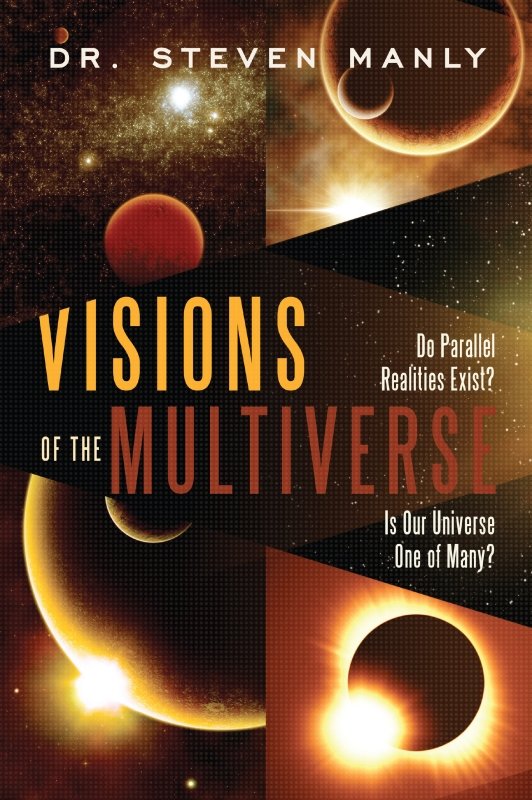
Table of Contents
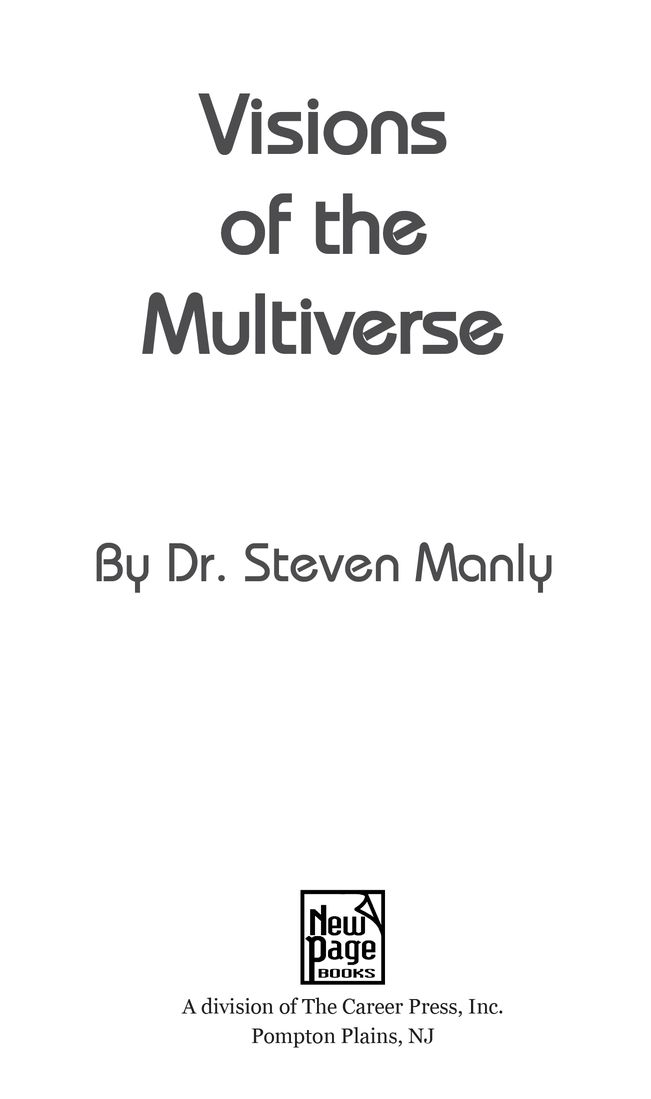
To Allison and David.
Acknowledgments
Projects like this dont have a beginning; they evolve from other things. This project, in particular, evolved from a different project that wasnt going anywhere very fast. Every time I commiserated with Gary Heidt about that other project, he would tell me, Write a book about the multiverse. Finally, I listened. Thanks, Gary. Thanks to Michael Pye and the folks at New Page Books for giving this project a chance. Im grateful for Kirsten Dalleys enthusiasm and suggestions. Go Columbia! Stephanie Brown Clark, a true friend of the written word, graciously read every chapter and gently provided me with needed feedback and a patient ear. I am grateful for her help and advice. Thanks to Jonathan Sherwood, Susan Gibbons, Connie Jones, Angie Zemboy, and Sylvia Manly for helping me define my voice through feedback on previous projects. Thanks to Alyssa Ney for fun discussions about the strange ideas in this book. Looking further back in time, Im indebted to Sylvia Manly for her encouragement to write about physics. I ask the forgiveness of my family and my research colleagues for the distraction produced by my living in other universes for the past year. Finally, I would like to thank the many fine physicists and philosophers whose creative ideas, books, and papers allowed me to explore the multiverse.
Introduction
Welcome to the multiple universe realitywhatever that is. It sounds like something from Star Trek. Yet more and more often I see references to multiple universes, or the multiverse, as if it were a respectable idea. and The Matrix, and in literature such as C.S. Lewiss Chronicles of Narnia and J.K. Rowlings Harry Potter series, as well as countless hardcore science fiction books. Beyond that, though, Im seeing the multiverse discussed in serious scientific papers by legitimate scientists, some of whom are people I know and respect. Talk about scary!
The whole concept of a multiverse seems rather ludicrous if you think about it for a moment. Isnt the universe all that there is? How then, you might wonder, can there be multiple universes?
Without a doubt, there is a semantics issue surrounding the multiverse. After all, the term multiple universe is something of an oxymoron. Forget the idea of multiple universes for a moment and ponder the concept of a single, simple, solitary, stand-alone universe. To me, the universe is a term used to denote everything that physically exists. It encompasses the totality of space and time and energy and physical constants and dogs and, yes, even teenagers. Its a rather all-inclusive definition, so its hard to imagine that theres more to things.
But what does it mean to say something exists physically? The implication is that we can experience it somehowwe can smell it or taste it or ferret out a signal implying its existence using a sensitive scientific experiment. Is it possible to imagine realms that might exist without a physical or causal connection to our known universe? You bet. It is possible to imagine such realms and thats where the multiverse comes in.
The idea of multiple universes is nothing new in the non-scientific realm. Consider the Christian concept of Heaven, for example. Admittedly, what is meant by Heavenand the corresponding price of admissionvaries depending on which of the diverse Christian sects we consider. A common theme is that Heaven is a separate plane of existence where a soul enjoys eternal life and pleasure in Gods presence and in the presence of other elect souls. Exactly how one becomes one of the elect souls varies from denomination to denomination, but many people believe theres a connection between behavior during ones life and admission to Heaven. Outside of that, there is no connection between Heaven and the reality in which we live our lives on Earth. There is nothing a physicist would consider as a scientific, causal connection between Heaven and our universe. In this sense, Heaven is outside our universe and the two planes of existenceHeaven and the world in which we livecollectively constitute a multiverse.
One problem with the multiverse concept is that there isnt just a single such concept. There is a multitude of different types of multiverses. The Heaven-plus-here multiverse mentioned is an example of what I call a faith-based multiverse. There are many other faith-based multiverse concepts, historical and current, such as ancient Egypts Kingdom of the Dead and Fields of Yalu, and the multiple levels of Jannah in Islam. As I mentioned earlier, theres nothing new in this. What is new is that there are a number of serious multiverse concepts coming out of modern physics. Distinct concepts of a multiple universe reality spring from quantum mechanics, cosmology, string theory-based cosmology, and ideas about a mathematicsbased reality that shares features with the faith-based concepts.
My aim here is to provide you with an overview of the different multiple universe concepts, along with the background to understand them informally. Along the way, well discuss the degree to which these ideas are based on science and the extent to which they are truly revolutionary. Are you ready to journey with me through this strange new reality? If so, read on!
Got Copernicus?
Are we in the midst of a fundamental revolution in our worldview ? Perhaps. Its happened before. There was a time when the Earth was thought to be at the center of the universe. Then along came a guy named Nicolaus Copernicus. As I heard the story, the revolution began when he was 16 and his frustrated mother took him aside and said, Nicky, youre driving me nuts! When are you going to realize the universe doesnt revolve around you?
Ba-da-ba! Feel free to groan. Sorry. Theres probably a reason why I do physics instead of stand-up comedy.
What makes this joke funnyto some folks, anywayis that it plays off the modern folklore surrounding Copernicus. Most of us grew up learning that the ancient Greeks thought of Earth as the stationary center of the universe with all the heavenly bodies embedded in perfect, nested, transparent spheres rotating around the Earth. After modifications by Ptolemy and others to include epicycles in around 100 AD, this cosmology worked fairly well in describing the motion of the sun, moon, planets, and stars. This so-called Ptolemaic view of the universe is said to have made the Christian church happy, because man has a special place in the universeat the center. In the 1540s Copernicus came along and, apparently having worked through his selfish teen years, determined that a sun-centered or heliocentric universe accounts for the observations with far less complexity than the Earth-centered picture. Soon afterward, Johannes Kepler discovered that a heliocentric universe with the planets moving in slightly elliptical orbits does even better in describing the motion of the heavenly bodies. Eventually, more and more precise measurements and work by Galileo and Newton showed that the Earth-centered universe does not account for the observations nearly as well as the heliocentric model. The Church chose to fight Copernicus and the heliocentric universe because the demotion of mankind from the central place in the universe was theologically unpalatable. Proponents of the heliocentric point of view were persecuted. Galileo was found guilty of heresy and placed under house arrest by the Catholic Church, for example. Eventually, the overwhelming weight of scientific evidence overcame the objections and the heliocentric universe became accepted generally.
Next page


